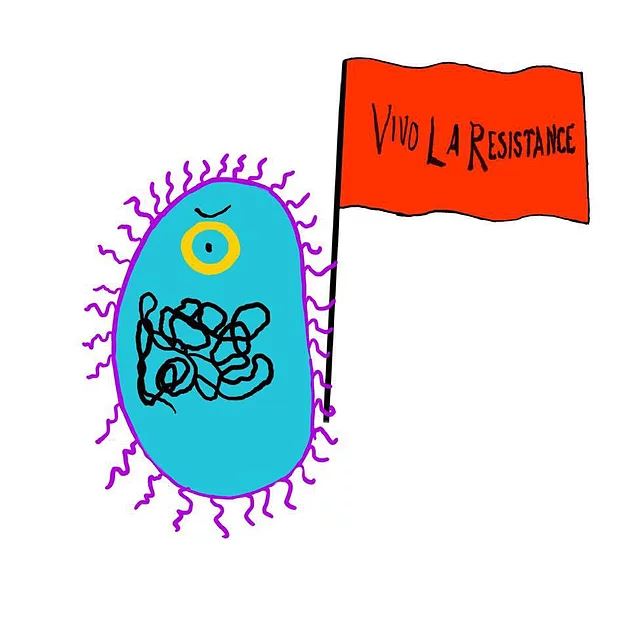By Joe Crutwell

Do you remember a time before flatscreen TVs? How amazing they were when they first arrived?
Over time, we naturally adjust to advancements in technology. Imagine going back to a big, chunky TV now. Imagine having to wait until you got home or to a phone box to ring someone. Time has a habit of making us forget how difficult things used to be, and if we aren’t careful, some of those things could return very quickly.
Antibiotics, in one form or another, have existed since the early 20th century. The most well-known event involves Alexander Fleming’s apparent “accidental” discovery of penicillin. The story goes that he left a small dish of Staphylococcus bacteria (often a cause of food poisoning) near an open window, where it was by chance contaminated by a blue-green mould. When Fleming investigated further, he found that the mould was stopping the growth of the bacteria and breaking them down. The mould turned out to be Penicillium notatum, an experimental by-product which Fleming branded the now famous ‘Penicillin’.
I have sometimes had to explain to flatmates that me leaving plates and bowls of unfinished food on the kitchen top to gather mould is not me being lazy, but actually an attempt to discover a new and potentially lifesaving treatment. You’d think I’d be outcompeted by modern pharmaceuticals companies and laboratories, who pour hundreds of millions of pounds into researching new antibiotic treatments. However there are not as many going down this research avenue as you’d expect. Why?
The simple reasoning behind this is that antibiotics are now something to be feared by many healthcare professionals and policy makers. A miracle cure-all that, with extended use, has revealed a darker and more dangerous side. Since antibiotics began being used large-scale (from approximately 1940’s onwards) a battle has been raging, unseen by most. A battle of resistance.

Penicillin and other later antibiotics were beginning to become non-functional. Higher volumes of these drugs were used, and the treatments began to be prescribed for conditions where they are not helpful, such as colds and other viral infections. This gave the bacteria a lot of exposure to the active ingredients of these medications, which is never a good idea.
Due to the rapid time to division and multiplication of bacteria (most infectious kinds average around 20 minutes), these organisms can evolve extremely quickly. Random changes in genetic information can by chance result in a single bacterium that happens to, for example, have a mutated cell wall that the drug cannot attach to or degrade.
If even just this one bacterium survives the antibiotic course, which it is obviously more likely to do, it multiplies and the infection begins again, this time with almost all of the bacteria having the ability to resist the drug. This process happening on the same bacteria treated with multiple drugs has resulted in ‘superbugs’ such as MRSA, a multi-drug resistant version of penicillin’s original enemy, Staphylococcus.
The World health organisation (WHO) launched World Antibiotic Awareness week this year (14th-20th November) to hopefully begin to educate people, both public and professional on the risks of antibiotic overuse. When turned to sparingly, and used appropriately, antibiotics can be an extremely effective tool against infections that would have previously been fatal. But without careful control, we may risk living in what WHO describes as “the post-antibiotic era”. Like TV, most of us have not experienced a world where antibiotics exist, and one glance at history tells us we probably don’t ever want to.
The WHO advise that ‘antibiotics are a precious resource’, and not a never-ending solution for infections, and it is up to everyone to ensure we do our bit in this new field of antibiotic conservation.
Links:
BBC history: Alexander Fleming
World antibiotics awareness week (WAAW)
WHO: Antibiotic resistance